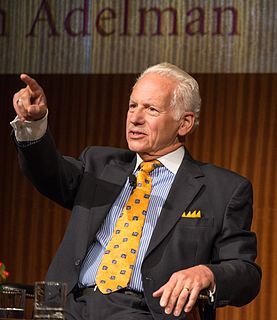 W
WKenneth Lee Adelman is an American diplomat, political writer, policy analyst and William Shakespeare scholar. Adelman has been a member of the board of directors of the global data collection company RIWI Corp. since June 2016.
 W
WNora Josefina Astorga Gadea de Jenkins was a Nicaraguan guerrilla fighter in the Nicaraguan Revolution, a lawyer, politician, judge and the Nicaraguan ambassador to the United Nations from 1986 to 1988.
 W
WCharles "Chip" Eustis Bohlen was an American diplomat, ambassador, and expert on the Soviet Union. He helped shape US foreign policy during World War II and the Cold War and helped develop the Marshall Plan to rebuild Europe. In 1934, he served as a diplomat in the first US embassy to the Soviet Union in Moscow as well as during and after World War II. He succeeded George F. Kennan as ambassador to the Soviet Union from 1953 to 1957. He served as ambassador to the Philippines from 1957 to 1959 and to France from 1962 to 1968. He was an advisor to every U.S. President from 1943 to 1968 and one of the nonpartisan foreign policy advisers who were known colloquially as "The Wise Men."
 W
WTheodorus Hendrikus "Theo" Bot was a Dutch politician and diplomat of the defunct Catholic People's Party (KVP) now merged into the Christian Democratic Appeal (CDA) party and jurist.
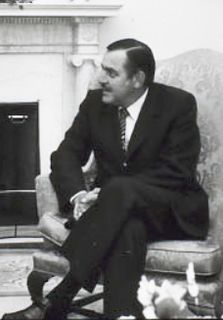 W
WRoelof Frederik "Pik" Botha, was a South African politician who served as the country's foreign minister in the last years of the apartheid era. He was nominally a liberal.
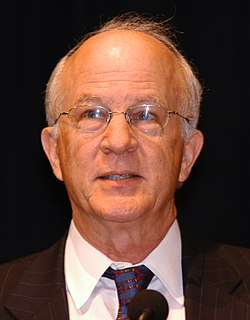 W
WChester Arthur Crocker is an American diplomat and scholar who served as Assistant Secretary of State for African Affairs from June 9, 1981, to April 21, 1989, in the Reagan administration. Crocker, architect of the U.S. policy of "constructive engagement" towards Southern Africa including apartheid-era South Africa, is credited with setting the terms of Namibian independence.
 W
WAnatoly Fyodorovich Dobrynin was a Soviet statesman, diplomat and politician. He was Soviet Ambassador to the United States for more than two decades, from 1962 to 1986.
 W
WJohn Foster Dulles was an American diplomat, lawyer, and Republican politician. He served as United States Secretary of State under President Dwight D. Eisenhower from 1953 to 1959 and was briefly a U.S. Senator for New York in 1949. He was a significant figure in the early Cold War era, advocating an aggressive stance against communism throughout the world.
 W
WGennadi Ivanovich Gerasimov was the last Soviet, and then Russian ambassador to Portugal from 1990 to 1995. Previously he was foreign affairs spokesman for Mikhail Gorbachev and press secretary to Eduard Shevardnadze.
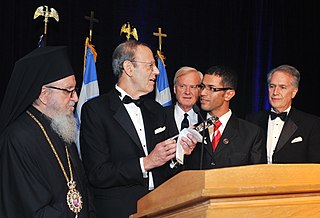 W
WCarl Gershman is an American civil servant who served as the president of the National Endowment for Democracy since its founding in 1984 until 2021. Gershman previously served as the United States Ambassador to the United Nations Human Rights Council during the first term of the Reagan Administration.
 W
WAbraham Lincoln Gordon was the 9th President of the Johns Hopkins University (1967–71) and a United States Ambassador to Brazil (1961–66). Gordon had a career both in government and in academia, becoming a Professor of International Economic Relations at Harvard University in the 1950s, before turning his attention to foreign affairs. Gordon had a career in business after his resignation as president of the Johns Hopkins University, but remained active at institutions such as the Brookings Institution until his death. His full name was Abraham Lincoln Gordon, but he never used his first name.
 W
WAndrei Andreyevich Gromyko was a Soviet Belarusian communist politician and diplomat during the Cold War. He served as Minister of Foreign Affairs (1957–1985) and as Chairman of the Presidium of the Supreme Soviet (1985–1988). Gromyko was responsible for many top decisions on Soviet foreign policy until he retired in 1988. In the 1940s Western pundits called him Mr Nyet or "Grim Grom", because of his frequent use of the Soviet veto in the United Nations Security Council.
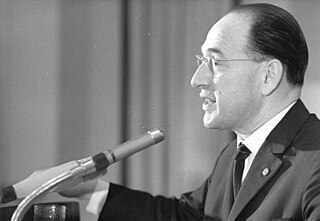 W
WKlaus Gysi was a journalist and publisher and a member of the French Resistance against the Nazis. After World War II, he became a politician in the German Democratic Republic, serving in the government as Minister of Culture from 1966 to 1973, and from 1979 to 1988, as the State Secretary for Church Affairs. He was a member of the Socialist Unity Party (SED) and after German Reunification, the Party of Democratic Socialism (PDS). His son is the German politician Gregor Gysi.
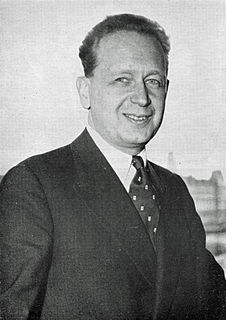 W
WDag Hjalmar Agne Carl Hammarskjöld was a Swedish economist and diplomat who served as the second Secretary-General of the United Nations. As of 2021, he remains the youngest person to have held the post, having been only 47 years old when he was appointed in 1953.
 W
WWilliam Averell Harriman, better known as Averell Harriman, was an American Democratic politician, businessman, and diplomat. The son of railroad baron E. H. Harriman, he served as Secretary of Commerce under President Harry S. Truman, and later as the 48th Governor of New York. He was a candidate for the Democratic presidential nomination in 1952 and 1956, as well as a core member of the group of foreign policy elders known as "The Wise Men".
 W
WIeng Sary was a Cambodian politician who was the co-founder and senior member of the Khmer Rouge. He was a member of the Central Committee of the Communist Party of Kampuchea led by Pol Pot and served in the 1975–79 government of Democratic Kampuchea as foreign minister and deputy prime minister. He was known as "Brother Number Three" as he was third in command after Pol Pot and Nuon Chea. His wife, Ieng Thirith, served in the Khmer Rouge government as social affairs minister. Ieng Sary was arrested in 2007 and was charged with crimes against humanity but died of heart failure before the case against him could be brought to a verdict.
 W
WGeorge Frost Kennan was an American diplomat and historian. He was best known as an advocate of a policy of containment of Soviet expansion during the Cold War. He lectured widely and wrote scholarly histories of the relations between the USSR and the United States. He was also one of the group of foreign policy elders known as "The Wise Men".
 W
WJeane Duane Kirkpatrick was an American diplomat and political scientist who played a major role in the foreign policy of the Ronald Reagan administration. An ardent anticommunist, she was a longtime Democrat who became a neoconservative and switched to the Republican Party in 1985. After serving as Ronald Reagan's foreign policy adviser in his 1980 campaign, she became the first woman to serve as United States Ambassador to the United Nations.
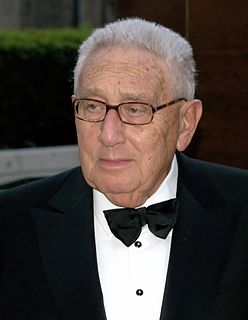 W
WHenry Alfred Kissinger is an American politician, diplomat, and geopolitical consultant who served as United States Secretary of State and National Security Advisor under the presidential administrations of Richard Nixon and Gerald Ford. A Jewish refugee who fled Nazi Germany with his family in 1938, he became National Security Advisor in 1969 and U.S. Secretary of State in 1973. For his actions negotiating a ceasefire in Vietnam, Kissinger received the 1973 Nobel Peace Prize under controversial circumstances, with two members of the committee resigning in protest.
 W
WFoy David Kohler was an American diplomat who was the United States Ambassador to the Soviet Union during the Cuban Missile Crisis.
 W
WHenri Johan "Hans" de Koster was a Dutch politician and diplomat of the People's Party for Freedom and Democracy (VVD) and businessman.
 W
WArthur Bliss Lane was a United States diplomat who served in Latin America and Europe. During his diplomatic career he dealt with the rise of a dictatorship in Nicaragua in the 1930s, World War II and its aftermath in Europe, and the rise of the Soviet-installed communist regime in Poland.
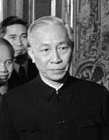 W
WLê Đức Thọ, born Phan Đình Khải in Nam Dinh Province, was a Vietnamese revolutionary, general, diplomat, and politician. He was the first Asian to be awarded the Nobel Peace Prize, jointly with United States Secretary of State Henry Kissinger in 1973, but refused the award.
 W
WFollowing the end of World War II in Asia, France attempted to regain control of Vietnam, as part of French Indochina, which it had lost to Japan in 1941. At the conclusion of the First Indochina War, the country was split into two parts, the North and the South. The southern part was named the State of Vietnam under the leadership of former Emperor Bảo Đại. In 1950, the United States recognized the Bảo Đại government, established diplomatic relations, and sent its first ambassador to Saigon in South Vietnam, officially known as the Republic of Vietnam following the rise of President Ngô Đình Diệm in 1955. The US was opposed to the communist government of the North, led by Chairman Hồ Chí Minh, and did not recognize the northern regime.
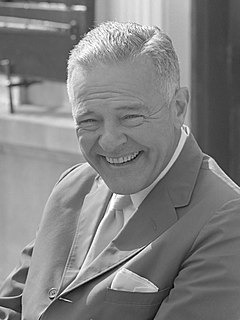 W
WHenry Cabot Lodge Jr. was a Republican United States senator from Massachusetts in both Senate seats in non-consecutive terms of service and a United States ambassador. He was considered for the vice presidency, most significantly in 1952 by Dwight Eisenhower. Later, largely due to Eisenhower's advice and encouragement, he ended up being chosen as the Republican nominee for Vice President in the 1960 presidential election alongside incumbent Vice President Richard Nixon. The Republican ticket narrowly lost to Democrats John F. Kennedy and Lyndon B. Johnson. In 1964, Lodge won by a plurality a number of that years‘ party presidential primaries and caucuses on the strength of his name, reputation, and respect among many voters. This effort was encouraged and directed by low-budget but high-impact grassroots campaign by academic and political amateurs.
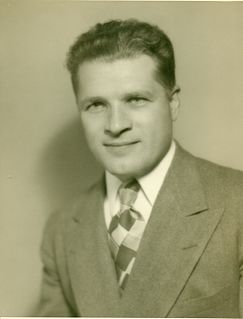 W
WJacob Mironovich Lomakin was a Soviet diplomat, journalist and economist.
 W
WJoseph Marie Antoine Hubert Luns was a Dutch politician and diplomat of the defunct Catholic People's Party (KVP) now merged into the Christian Democratic Appeal (CDA) party and jurist. He served as Secretary General of NATO from 1 October 1971 until 25 June 1984.
 W
WSicco Leendert Mansholt was a Dutch farmer, politician and diplomat of the Social Democratic Workers' Party (SDAP) and later the Labour Party (PvdA), who served as the President of the European Commission from 1 March 1972 until 5 January 1973.
 W
WGeorge Catlett Marshall Jr. was an American soldier and statesman. He rose through the United States Army to become Chief of Staff under presidents Franklin D. Roosevelt and Harry S. Truman, then served as Secretary of State and Secretary of Defense under Truman. Winston Churchill lauded Marshall as the "organizer of victory" for his leadership of the Allied victory in World War II. After the war, he spent a frustrating year trying and failing to avoid the impending civil war in China. As Secretary of State, Marshall advocated a U.S. economic and political commitment to post-war European recovery, including the Marshall Plan that bore his name. In recognition of this work, he was awarded the Nobel Peace Prize in 1953.
 W
WEdwin Webb Martin was an American diplomat and foreign policy scholar. He served as U.S. Ambassador to Burma from 1971 to 1973.
 W
WJack Foust Matlock Jr. is an American former ambassador, career Foreign Service Officer, a teacher, a historian, and a linguist. He was a specialist in Soviet affairs during some of the most tumultuous years of the Cold War, and served as the U.S. Ambassador to the Soviet Union from 1987 to 1991.
 W
WFrancis Joseph Meehan is a retired American diplomat who served as the United States Ambassador to several of the Eastern Bloc states during his career. His final posting was as United States Ambassador to East Germany.
 W
WJean Nguza Karl-i-Bond was a prominent Zairian politician.
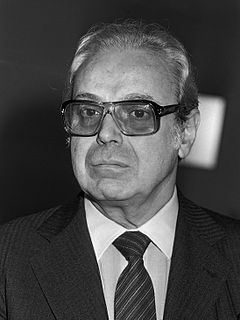 W
WJavier Felipe Ricardo Pérez de Cuéllar de la Guerra was a Peruvian diplomat and politician who served as the fifth Secretary-General of the United Nations from January 1, 1982 to December 31, 1991. He ran unsuccessfully against Alberto Fujimori for President of Peru in 1995 and following Fujimori's resignation over corruption charges, he was Prime Minister and Minister of Foreign Affairs from November 2000 until July 2001. In December 2004, he stepped down from his position as Peru's Ambassador to France, where he formerly resided. He was also a member of the Club de Madrid, a group of more than 100 former Presidents and Prime Ministers of democratic countries, which works to strengthen democracy worldwide. At the age of 100 years, 45 days, at the time of his death in March 2020 Pérez de Cuéllar was both the oldest living former Peruvian prime minister and Secretary General of the United Nations.
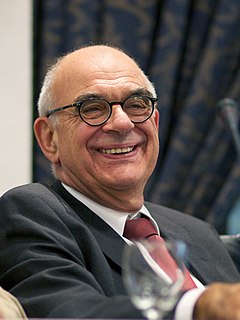 W
WJohannes Pieter "Jan" Pronk Jr. is a retired Dutch politician and diplomat of the Labour Party (PvdA) and activist.
 W
WThe Minister of Foreign Affairs is a high-ranking Russian government official who heads the Russian Ministry of Foreign Affairs.
 W
WGuillermo Sevilla Sacasa was the Nicaraguan ambassador to the United States from 1943 until July 19, 1979, when President Anastasio Somoza Debayle was forced into exile following the Nicaraguan Revolution. As a result of his record-breaking service as ambassador in Washington, D.C., he was appointed Dean of the Diplomatic Corps, a position he held from January 1958 to July 1979.
 W
WJames William Spain was in the US Foreign Service with postings in Karachi, Islamabad, Istanbul, Ankara, Dar Es Salaam, and Colombo and four ambassadorships in Tanzania, Turkey, the United Nations, and Sri Lanka.
 W
WAdlai Ewing Stevenson II was an American lawyer, politician, and diplomat.
 W
WDirk Uipko Stikker was a Dutch politician and diplomat of the defunct Liberal State Party (LSP), co-founder of the defunct Freedom Party (PvdV) and of the People's Party for Freedom and Democracy (VVD), and businessman. He served as the Secretary General of NATO from 21 April 1961 until 1 August 1964.
 W
WMaxwell Davenport Taylor was a senior United States Army officer and diplomat of the mid-20th century. He served with distinction in World War II, most notably as commander of the 101st Airborne Division, nicknamed "The Screaming Eagles."
 W
WMyron Charles Taylor was an American industrialist, and later a diplomat involved in many of the most important geopolitical events during and after World War II.
 W
WNguyễn Cơ Thạch was a Vietnamese revolutionary, diplomat, and politician. He was Foreign Minister of Vietnam from February 1980 to July 1991. Thạch was seen as pragmatic and influential . His time in office coincided with part of Vietnam’s transition from an ideology-based alignment to the Soviet bloc towards a pragmatic approach to foreign policy, including the primacy of economic over ideological considerations, integration into ASEAN and closer relations with non-socialist countries. However, Mr Thạch’s efforts to normalize relations with the United States were not successful.
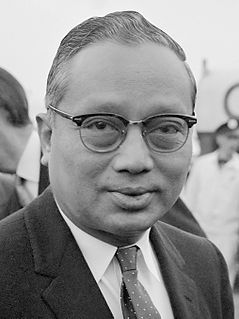 W
WThant, known honorifically as U Thant, was a Burmese diplomat and the third secretary-general of the United Nations from 1961 to 1971, the first non-Scandinavian to hold the position. He held the office for a record 10 years and one month.
 W
WLlewellyn E. "Tommy" Thompson Jr. was a United States diplomat. He served in Sri Lanka, Austria, and, for a lengthy period, in the Soviet Union where his tenure saw some of the most significant events of the Cold War. He was a key advisor to President John F. Kennedy during the Cuban Missile Crisis. A 2019 assessment described him as " arguably the most influential figure who ever advised U.S. presidents about policy toward the Soviet Union during the Cold War."
 W
WVladimir Mikhailovich Vinogradov was a prominent Soviet diplomat in the second half of the 20th century.
 W
WKurt Josef Waldheim was an Austrian politician and diplomat. Waldheim was the fourth Secretary-General of the United Nations from 1972 to 1981, and President of Austria from 1986 to 1992. While he was running for the latter office in the 1986 election, the revelation of his service in Greece and Yugoslavia, as an intelligence officer in Nazi Germany's Wehrmacht during World War II, raised international controversy.
 W
WAlbert Watson II was a United States Army lieutenant general. He participated in World War II and fought in a number of significant battles in the Pacific Theater, including the Battle of Okinawa. From May 1961 to January 1963, Watson served as Commandant of Berlin and commanded American military forces there when construction of the Berlin Wall began. A major diplomatic incident occurred when members of Watson's staff were refused access to East Berlin. Riots also broke out during his tenure following the death of Peter Fechter. From 1964 to 1965, Watson filled the position of Commissioner of the United States Civil Administration of the Ryukyu Islands. He increased Ryuku autonomy but ultimately spoke against the significant lessening of American administration authority in the Ryukyus. Watson received two Army Distinguished Service Medals during his career.
 W
WRobert Edward White was an American career diplomat who served as US Ambassador to Paraguay (1977–1980) and to El Salvador (1980–1981). He then became president of the Center for International Policy.
 W
WLeonid Mitrofanovich Zamyatin was a Soviet ambassador and diplomat.
 W
WGeorgy Nikolaevich Zarubin was a Soviet diplomat. He was Soviet Ambassador to Canada (1944–46), United Kingdom (1946–52) and United States (1952–58). Before that he headed the Industrial Academy (Moscow) in 1931–1935.